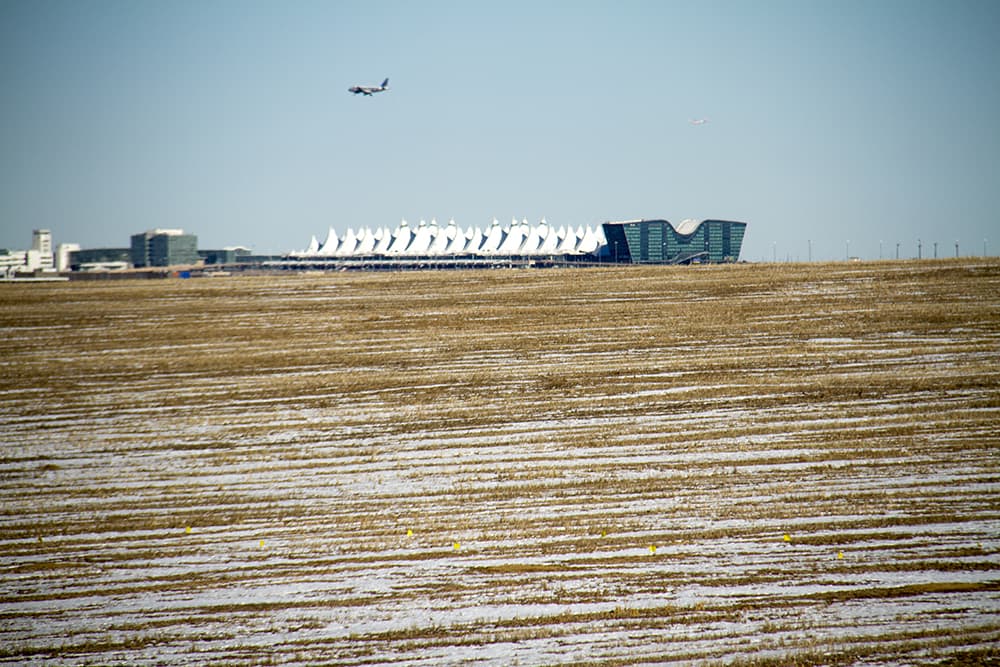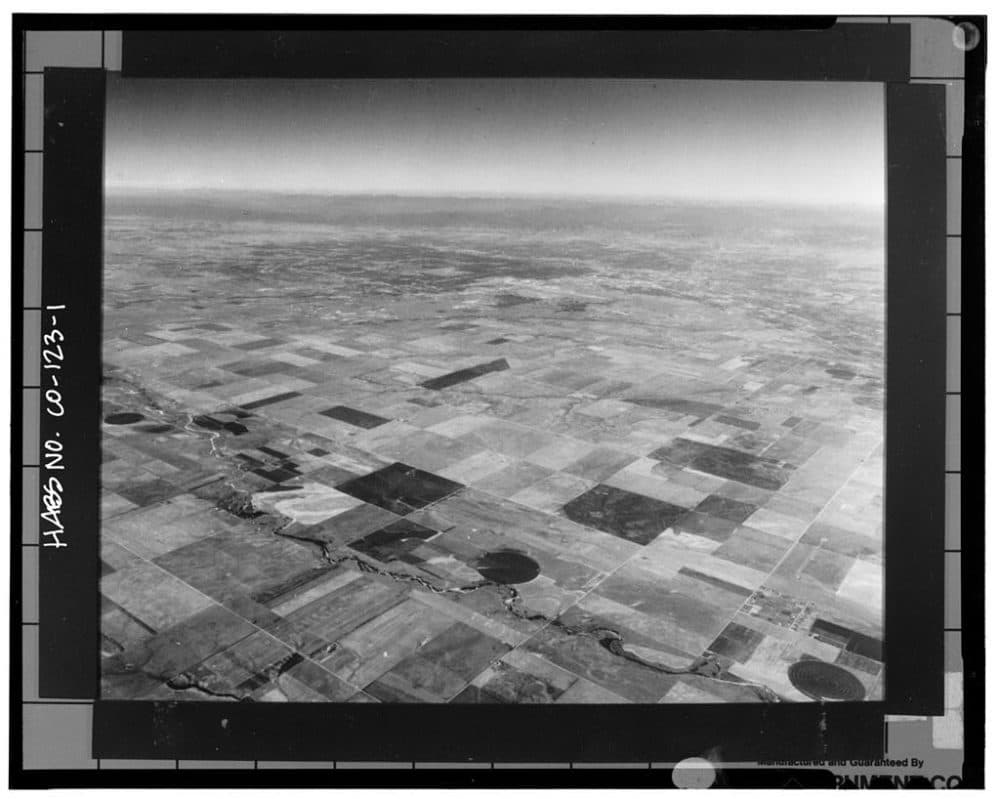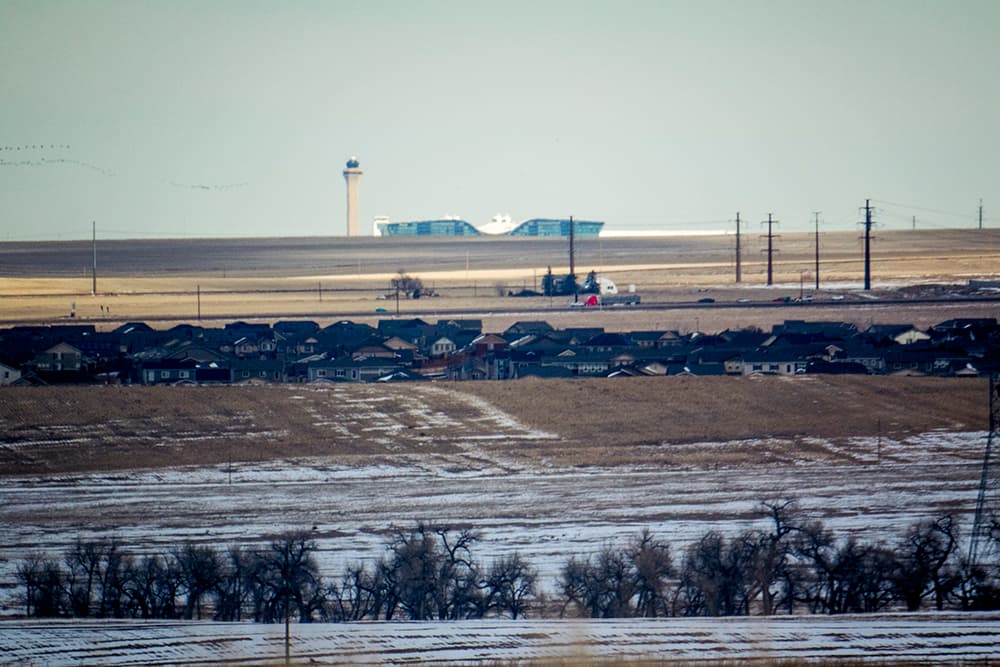Right now, there are a few things on the land surrounding Denver International Airport: parking lots, rental cars, a gas station and, of course, sunflower fields.
In 20 years, it could be a different story. The city is laying the groundwork to transform some of the thousands of blank acres around the airport into a multi-district commercial zone.
If all goes according to plan, private developers could build some 20 million square feet over about 20 years on airport land, according to Darryl Jones, chief real estate officer for DEN.
"This is about half the size of downtown spread across all of these districts," Jones told Denverite. "And that's just in the first phase of development."
(Downtown has about 42 million square feet of office and retail space, not counting residences and hotels, according to the Downtown Denver Partnership.)
The airport plan is all very conceptual at this point -- but it's set to take a major step forward. Airport officials are preparing to sign a $4.5 million contract with the real-estate firm CBRE, which will help it land some potential real estate deals.

This has been in the works.
Mayor Michael Hancock has been working for years about the ideas of an "airport city" at DEN, and an "aerotropolis" outside its borders.
Back in the 1980s, the city of Denver annexed some 34,000 acres of land in the 1980s as it prepared to build the airport. Well, they didn't need all that much for aviating.
The planning started in earnest in 2012. Even with the expansion plans for the airport itself -- which could include new concourses and a dozen runways -- DEN's still left with 16,000 usable acres.
In 2015, Denver and Adams county voters cleared the way for commercial development on 1,500 acres of airport property, clearing up an earlier (and somewhat comical) dispute in which Adams County asked for the airport land back.
Jones, the real estate chief, was hired in 2016 and charged with guiding future development.

Now, it's getting real.
The airport is looking at some initial deals that could bring new developers onto airport land this year, according to a staff report.
Officials haven't yet detailed what those deals could be, but Jones described an ambitious overall vision. A key principle, he said, is to "concentrate development in identifiable districts."
The ideas he described to Denverite included:
- A research and development campus
- A hotel and retail district
- An international business and conference center near the terminal -- "potentially," he cautioned
- Transit-oriented development on the A Line at 61st and Peña, where DEN owns 60 acres, and at the planned station at 72nd and Himalaya
- Passenger-serving businesses in the median of Peña Boulevard. That could include "quick serve" businesses, from grocery stores to dry cleaning.
One thing there won't be: housing.
"We're not allowed to build any residential on the airport land. We don't want to create Stapleton Part Two," he said, referring to Denver's old and rather cramped airport.
"It could be recreation-type uses, it could be industrial, it could be hospitality, it could be retail."
Of course, all this depends on the airport finding private partners. Rather than building this stuff itself, DEN will prepare development sites and lease them out to builders.
The master plan will focus on keeping open spaces and views between the various districts, Jones said -- including space for the beloved sunflower fields.
"We intend to maintain kind of that agricultural history and landscape features that are important to Colorado," he said.
What's next?
The Denver City Council will consider the contract with CBRE at an upcoming meeting. Meanwhile, Jones and staff will start planning out some of the infrastructure, such as roads and utilities, that could support the new development.
The goal is "to really develop an additional revenue stream for the airport so that we're not solely dependent on fees that we collect from airport."
And we could be talking about this for a long time to come. "It's literally a 50 year project to really develop a good portion of this," he said.











